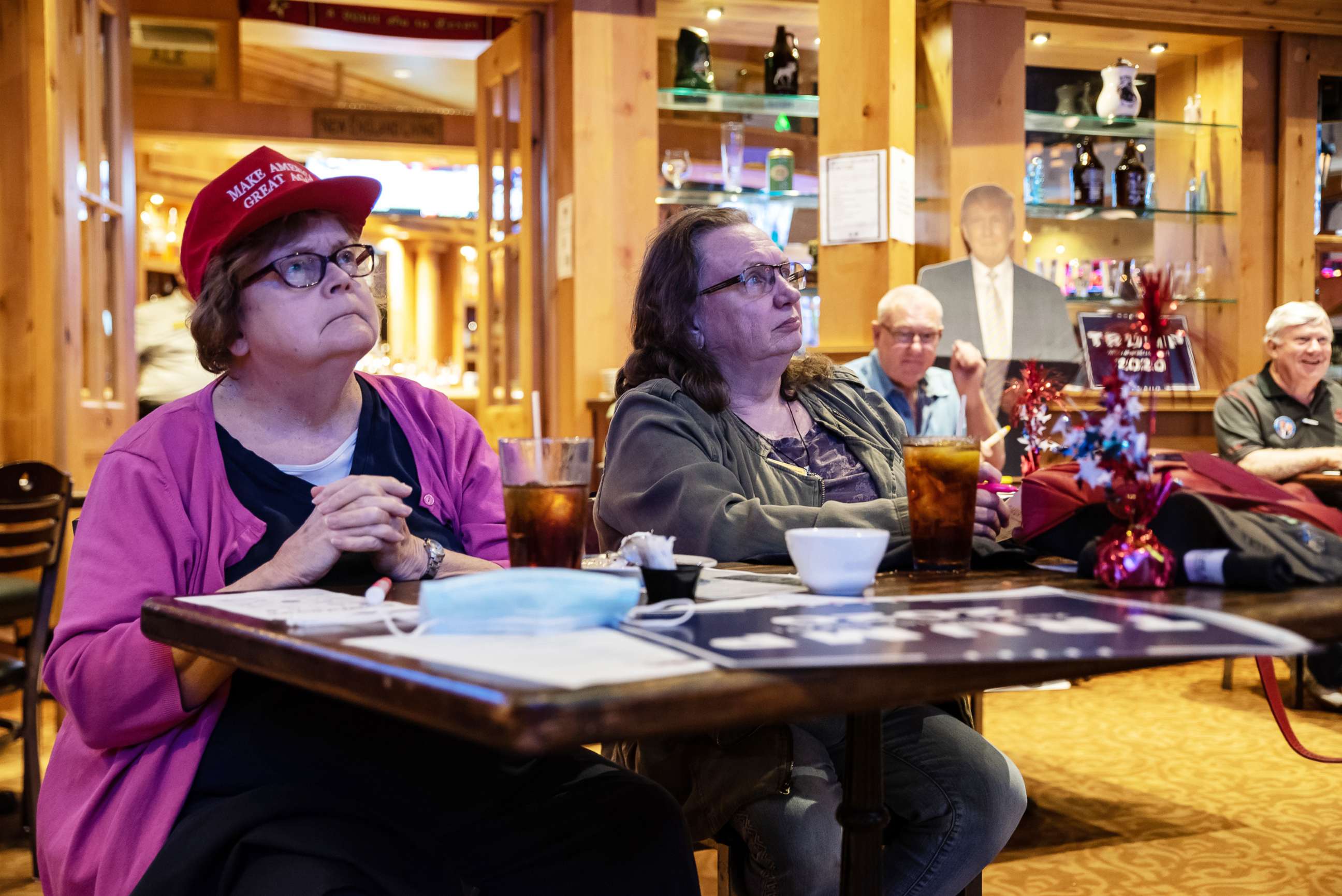Healthy enough to debate, president defiant on questions about COVID-19: ANALYSIS
Thursday’s night debate was second and final debate of this election cycle.
There were supposed to be three.
Thursday night's debate was only the second this cycle after the town hall was canceled when President Donald Trump and nearly two-dozen of his associates contracted COVID-19 and he refused to debate his Democratic opponent Joe Biden virtually.
The president’s personal experience battling the coronavirus may have changed the schedule, but it had little impact on the substance of the debate or how the president talked about the novel coronavirus in the end.
As it still dominates Americans’ lives, the pandemic was the first and central focus of the conversation between the two candidates and Trump, predictably, stuck to his campaign script downplaying health risks from experts and arguing for opening up businesses.
“I can tell you from personal experience that I was in the hospital. I had it. And I got better... We're learning to live with it. We have no choice. We can't lock ourselves up,” he said. “I don’t think we're gonna have a dark winter at all. We're opening up our country.”
When asked to describe a concrete plan for dealing with the current phase of the pandemic, with hundreds of Americans still dying each day, Trump mostly looked backward instead. “It is not my fault it came here.... It's a worldwide pandemic. It's all over the world,” he said.
The president, who described his own illness as a “blessing,” said earlier in the week that people were “tired” of the coronavirus and tired of warnings from scientists. They were statements that needed no fact checks, though they were widely criticized for their deafness when the country is still dealing with so much death.
He's right, people are exhausted by the ongoing and massive disruptions to their day-to-day lives and the near constant threat of the virus. But being over it, does not make the pandemic over, regardless of how much the president would like it to be so. And polling still shows voters are more likely to trust Biden on the issue.
Biden for his part Thursday defended his previous statements about listening scientists, even if they suggested more economic shutdowns. He argued his goal was opening schools, restaurants and offices but with more safety precautions.

“I’m going to shut down the virus not the country,” he said and went on to criticize the administration’s handling of the virus the last few months.
“He thinks that we are in control? We're about to lose 200,000 more people.... The fact is that when we knew it was coming, when it hit, what happened? What did the president say? He said, ‘Don't worry, it's going to go away. Be gone by Easter. Don't worry. The warm weather. Don't worry, maybe inject bleach,’” Biden rebutted.
Back together sharing a stage, some aspects of the debate were noticeably different compared to the first go-around before the outbreak at the White House. Other sights and scenes from the debate in Tennessee, however, were eerily the same.
Despite making a debut at the vice-presidential showdown, plexiglass was placed but then pulled off the stage hours before the debate kicked-off. The live studio audience was bigger, not smaller than the first debate, and while the rows were spaced out, individual seats were not. Groups sat separately, leaving seats empty in between in the hall, and unlike the first debate, everyone in the audience wore a mask. Even first lady Melania Trump wore her mask onstage when greeting her husband at the conclusion of the debate.
The president at one point mentioned how his son tested positive, too, but then went on to make false and exaggerated claims about how the virus affects young people.
Growing frustrated with the extended back and forth on the opening topic, Trump repeatedly tried to move on, at one point even saying, “just to finish this...”
Later, though, he faced related questions about economic relief for families in need.
“As of tonight, 8 million more Americans have fallen into poverty, and more families are going hungry every day,” moderator Kristen Welker asked. “Mr. President, why haven't you been able to get them the help they need? 30 seconds here.”
Trump pointed fingers at Democrats, while Biden told him to talk to his Republican colleagues who have thrown water on the idea of a major economic package.
In the end, while the president referred to his family’s own experience with COVID-19 and struck an optimistic tone about moving on, he still struggled to empathize with those hurting or sick today.




